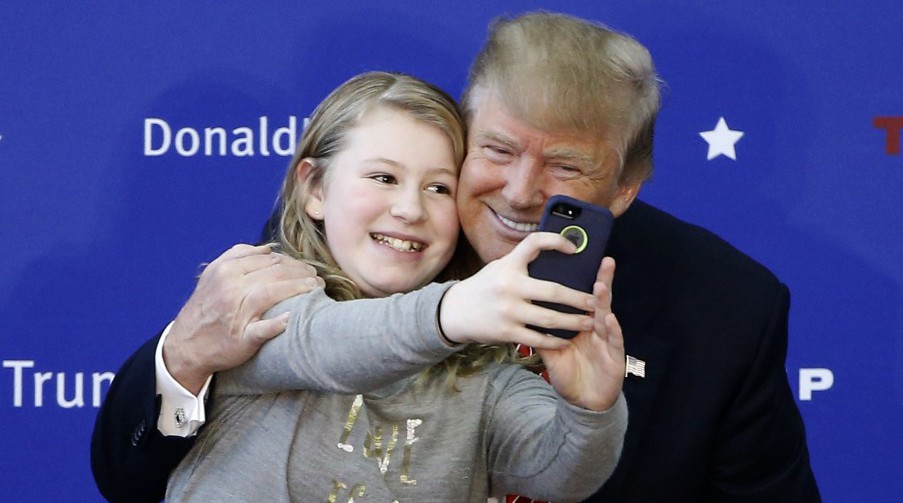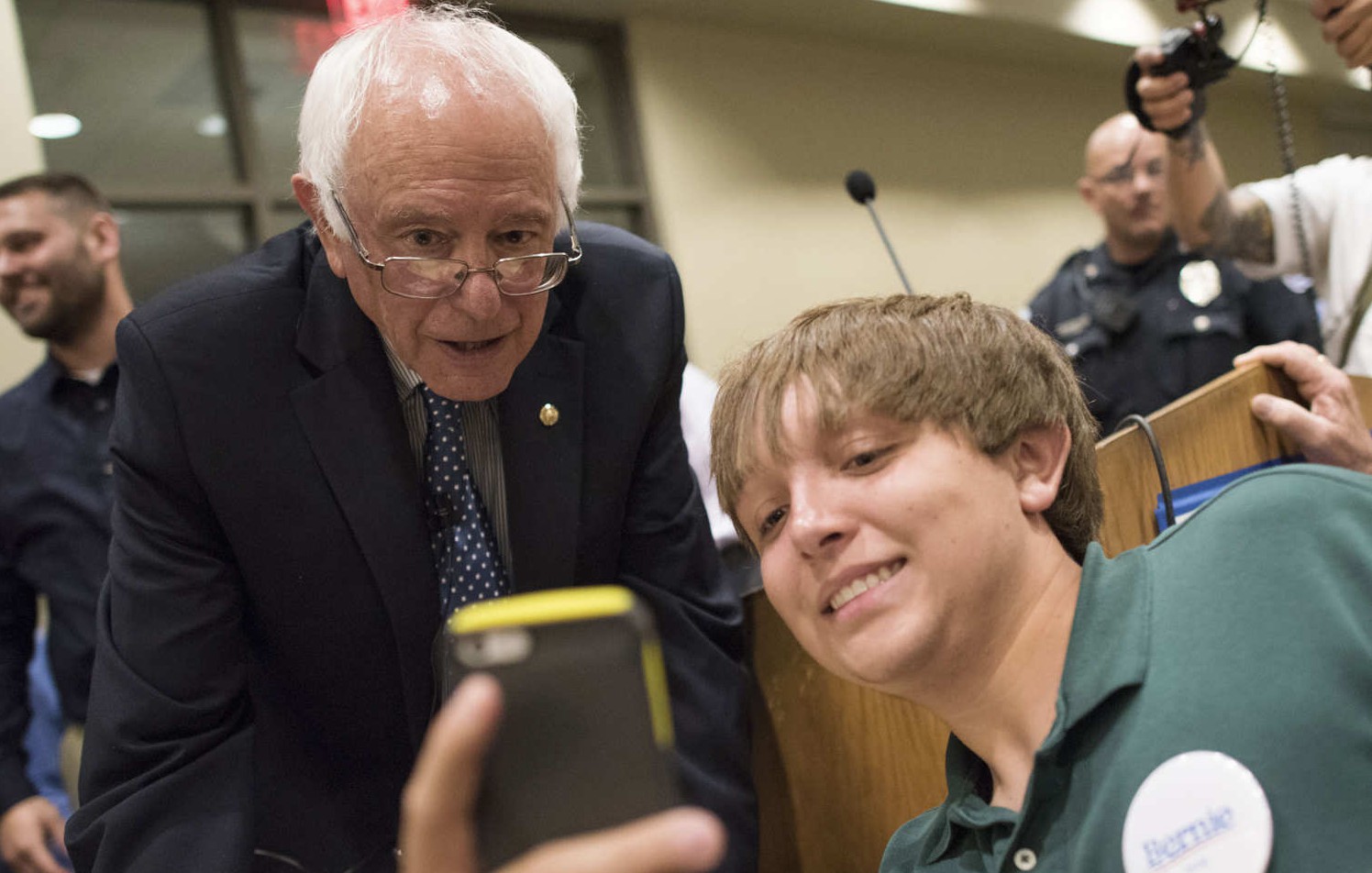
This is the first in a four-part series inspired by Christopher Lasch’s 1979 book The Culture of Narcissism.
In the present presidential contest, Louisiana governor Bobby Jindal was the first person to say it out loud, to use the “N” word for Donald Trump. That’s right, he called Trump a narcissist. Specifically, in his news conference on September 10, 2015, Jindal said, “Donald Trump is not a serious candidate. He’s a narcissist. He’s an egomaniac. The only thing he believes in is himself” and expounded on the meaning of this description for nearly ten minutes. Harsh words, indeed; but I do not come to bury, praise, or pile on Trump, though if you google “piling on Trump” you will find many people who are. You can also find, without looking very hard, similar accusations of narcissism directed at a variety of politicians and pop stars. I do not think many of them suffer specifically from what the Diagnostic and Statistical Manual of Mental Disorders (DSM–5) identifies as Narcissistic Personality Disorder (NPD). But I do think their colloquial narcissism is just the celebrity tip of a very large political and cultural iceberg.
Narcissism has become the pervasive condition of American culture. The kingdom of narcissism has invaded and conquered every social territory. Family, marriage, sex, politics, business, art, religion. Historian and social critic Christopher Lasch diagnosed and described this condition thirty-seven years ago in his influential book The Culture of Narcissism. Lasch believed that pathological narcissism was the key metaphor of late twentieth-century American culture. Pathological narcissism, as Lasch analyzes it, couples the outward expression of egocentricity and self-absorption with an actually weak sense of self, inner emptiness, and a constant need for external validation and gratification. A pathological narcissist has an exaggerated sense of self-importance, but requires attention, admiration, and even envy to bolster his self-esteem. He will project arrogance and manipulate others, who he sees as merely means to his own self-aggrandizement and personal satisfaction. Narcissists see others, and the world, as mirrors reflecting their own ego needs. The world and everyone in it exist for the sake of my self; a condition of arrested, and unrestrained, infantilism.
Lasch detailed the real cultural manifestation of this metaphor of narcissism. Writing in 1979 his analysis was prescient, accurately describing a swelling wave which would grow, and break, and crash on the whole cultural landscape. The sensibilities and trends Lasch described then have today only grown in extent and intensity. Long before the internet and the digital revolution, Lasch recognized that “modern life is so thoroughly mediated by electronic images that we cannot help responding to others as if their actions—and our own—were being recorded and simultaneously transmitted to an unseen audience.” Long before the ubiquitous smartphone “selfie,” he commented on Susan Sontag’s observation that “self-surveillance” was the most important of the “many narcissistic uses” of the camera, noting that “it renders the sense of selfhood dependent on the consumption of images of the self.” No experience—no outing, party, concert, sporting event, wedding, funeral, or just hanging out—is complete in itself, or even real, until we record ourselves in the midst of it and then post it on social media. The recording of our selves in the present moment has become the only meaning of the event.
Thus, a denigration of the past permeates the culture today. The condition has only worsened from when Lasch excoriated “our culture’s indifference to the past—which easily shades over into active hostility and rejection [and which] which furnishes the most telling proof of that culture’s bankruptcy.” The only thing that counts is now. What is important is what is “trending.” The lessons of past experience or tradition are taken as irrelevant to the patterns and problems of the present. This has been called “modern chauvinism,” a rejection of the culture and values that preceded us as, at best, hopelessly naïve and “unevolved.”
In social cultural expressions, such as government, law, and politics, this neglect of the past manifests itself in continuous experimentation and alteration in social policies and social morality, though it often only amounts to a constant recycling of stock “progressive” ideas. “All politics,” Lasch declares, “has become a form of spectacle” where image is carefully managed, and “policy making” has come to have no other point than to “excite admiration or envy.”
In our personal lives, perpetually focusing on our present experience to the exclusion of our past results in the emptying out of our interior lives, which then require regular refills from popular culture to alleviate our sense of purposelessness and meaninglessness. The popular culture obliges us, as Lasch points out: “The media give substance to and thus intensify narcissistic dreams of fame and glory, encourage the common man to identify himself with the stars and to hate the ‘herd’ and make it more and more difficult for him to accept the banality of everyday existence.” And what we want out of the sort of celebrity that the media holds out as a brass ring on the merry-go-round of popular culture is not regard and respect for our actions and accomplishments but envy. Lasch writes:
Today men seek the kind of approval that applauds not their actions but their personal attributes. They wish to be not so much esteemed as admired. They crave not fame but the glamour and excitement of celebrity. They want to be envied rather than respected…fame depends on the performance of notable deeds acclaimed in biography and works of history, celebrity—the reward of those who project a vivid or pleasing exterior or have otherwise attracted attention to themselves—is acclaimed in the news media, in gossip columns, on talk shows, in magazines devoted to “personalities.”
He could have written all this yesterday about the vaporous lives of current celebrities and media personalities, whether in entertainment or politics.

COMMENTS
2 responses to “The Culture of Narcissism, Part 1: Politics and Personhood”
Leave a Reply















Eye opening and true!